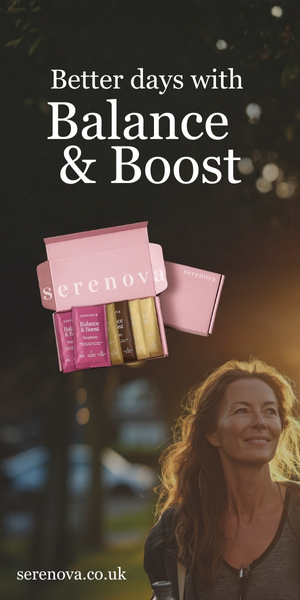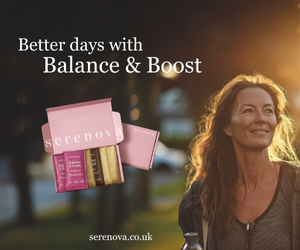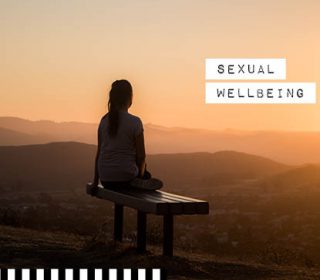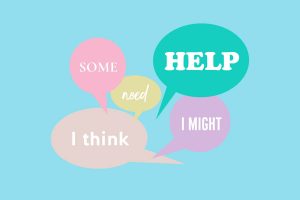Could creativity be the cure for anxiety?

When was the last time you were truly creative? As in, genuinely creative. We don’t mean folding the laundry in a different way or mowing the lawn in horizontal stripes. But that’s a start.
If you look back at your childhood, your happiest moments were probably spent throwing paint around, building forts, or attempting to form a band. For children, using imagination is a key part of everyday life. However, as we get older we are more likely to spend our precious free time bingeing on box sets or scrolling social media rather than practising a hobby.
Shocking as it is, creativity could be better for us than Game Of Thrones or anonymously commenting on message threads.
With society’s stress levels at an all-time high – stress accounted for 45% of all working days lost to ill health in 2015 – could creativity be the remedy? Research shows that people who regularly engage with an artistic hobby have higher overall life satisfaction than those who don’t.
The importance of ‘flow’
Being creative, whether that’s writing, gardening or playing an instrument, helps us to relax and de-stress. A US study found that college students who completed creative projects saw a decrease in anxiety levels. This is because when we partake in creative activities we are engaged in what experts describe as a sense of ‘Flow’. As psychologist Elaine Slater explains: ‘This can put us in a near-meditative state where we lose track of time and feel removed from the stressors of life.’
While you may think that you’re happiest when lying on the sofa, research suggests otherwise. Psychologist Mihaly Csikszentmihalyi – who coined the term ‘Flow’ – argues that our best moments occur when ‘a person’s body or mind is stretched to its limits in a voluntary effort to accomplish something difficult and worthwhile’.
With the average person spending 25 hours online a week, engaging in a creative activity provides a much-needed screen break. Spending just an hour or two each week working on a project can offer a deep sense of satisfaction and build self-confidence in a way that Netflix never will. This is what Carrie Barron, author of The Creativity Cure calls the ‘I did it!’ phenomenon. Carrie says: ‘So much of daily living in a tech culture involves solving with a click. Longer processes, though they can be messy, unclear and frustrating, also offer opportunities for pride, stretch and personal, concrete satisfaction.’
Not only an excellent way to escape from the stresses of modern life, being creative actually helps us to train our brain to work and think differently.
Shelley H Carson, author of Your Creative Brain, says: ‘We quit thinking about our own fears and stressors and focus on what is novel and original. If we do this with frequency, we can train our brains to automatically explore rather than avoid.’
Get into the creative cycle
Even better, creativity itself breeds creativity. Being actively imaginative helps us to gain confidence in our abilities, and we are therefore more likely to think creatively in other aspects of our life, whether that is at work, social situations or in our relationships. ‘We begin to trust our inherent emotional intelligence and we find new solutions to what may have stumped us before,’ adds Barbara Diane Barry, author of Painting Your Way Out of a Corner.
It seems that thriving careers and creative pursuits often go hand-in-hand. Throughout history, some of the most successful people have found creative hobbies to be the ultimate tonic. Winston Churchill painted regularly during his time in office, and felt expressing himself artistically proved the ideal way to combat the stresses of a world war. Albert Einstein played both the piano and the violin throughout his career as a physicist, while poet Emily Dickinson was also an accomplished baker.
It’s about the process not the product
Incorporating creativity into your life needn’t be difficult. It doesn’t matter what hobby you take up or whether you have any natural talent, it’s more about the process than the final product. Failure in this instance is actually beneficial. ‘Ignore people who tell you you’re not good enough at your chosen hobby and just enjoy the learning experience,’ says Shelley.
With mindfulness the buzzword du decade, the concept of creativity for health and happiness is having a major renaissance. Unsurprisingly, London itself is a hotbed, with classes popping up offering everything from screen printing to preserve-making.
Take MindfFOLDness, an origami company whose workshops are dubbed by founder Sam Tsang as ‘yoga for the mind’. Sam believes the current trend for embracing creativity is a direct reaction to our digital lifestyles. ‘Many of us spend eight hours a day sitting in front of a screen, creating virtual documents that are read once and never seen again,’ says Sam. ‘We therefore need to have a creative outlet to express ourselves, and make something that is tangible.’
Whether it’s writing in a notebook, recording a tune or spinning a pot, hobbies allow us to reconnect with the physical and tune into inspiration, symbols and our collective consciousness.
There is no time like the present to get started.
Read more: How to deal with stress at work












